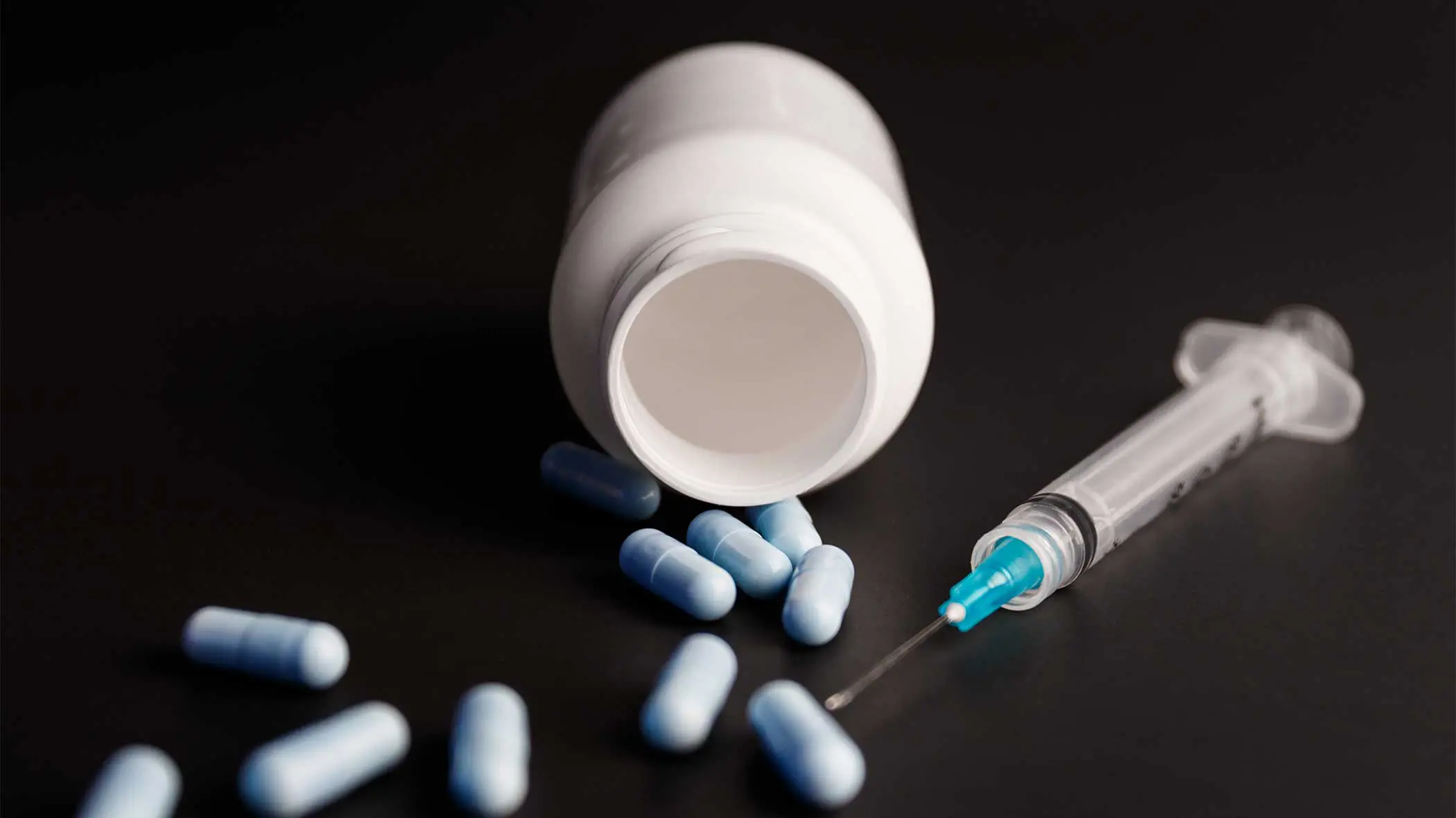
Synthetic opioids are opioids that are entirely man-made and produced in a lab. They are created to have similar effects on the body as natural opioids, and a few of them have even been approved for medical use.
Examples of synthetic opioids include:
What Are Semi-Synthetic Opioids?
Semi-synthetic opioids are opioids that are produced from the original compounds in the poppy plant and then synthesized with other non-natural compounds.
Essentially they are non-natural opioids that have been made out of natural opioid ingredients.
Examples of semi-synthetic opioids include:
How Are Synthetic Opioids Used?
Synthetic and semi-synthetic opioids come in a few different forms, with the most common being powder, liquid, or tablet.
You will also find synthetic and semi-synthetic opioids in both prescription and illicit forms.
This will depend on how the opioids were obtained, whether purchased or stolen from someone with a legitimate prescription or created in a private or amateur lab.
Oftentimes, you will see the powder form of opioids either being dissolved into an injectable liquid or formed into an easy-to-take tablet or pill.
This makes them both easier to take and gives them more of an appearance of being legal if they have been produced illegally.
Why Are Synthetic Opioids Dangerous?
All opioids can be dangerous but synthetic and semi-synthetic opioids pose a couple of extra dangers. These dangers are found in how these opioids are produced and whether they are prescribed or sold illegally.
If produced illegally, doses could vary from pill to pill or bottle to bottle and you may never know exactly what you are getting.
In addition, it has grown more and more popular in recent years to cut certain drugs with opioids, such as fentanyl, in order to save money and increase potency.
Because fentanyl is extremely potent, this is very dangerous because the customer is often unaware of what they are buying.
Is It Possible To Overdose On Synthetic Opioids?
It is very possible to overdose on synthetic and semi-synthetic opioids. In fact, of all overdose deaths that occur in the United States each year, around 70% of them can be attributed to opioids of some kind.
Some opioids are easier to overdose on than others, so it is always important to follow a physician’s instructions exactly when taking them as prescribed.
A drug like fentanyl, which is extremely potent, takes only 2-3 mg for an overdose to occur, depending on a few factors such as the individual’s size and drug tolerance. Because of this, even trying fentanyl once can be potentially deadly.
Symptoms of a synthetic opioid overdose include:
- slow or shallow breathing
- drowsiness
- loss of consciousness
- confusion
- bluish skin
- trouble breathing
- limp body
Finding Addiction Treatment For Synthetic Opioids
An addiction to opioids of any kind should be considered extremely dangerous. Luckily, treatment is widely available to help you or your loved one get their life back on the right track to being opioid-free.
Options for treating synthetic opioid addiction include:
- medical detox
- inpatient and/or residential rehabilitation
- individual and family counseling
- recreational and outdoor therapy
We understand that it can be hard to ask for help, so our representatives are always welcoming and understanding. Please give us a call today.
Addiction Resource aims to provide only the most current, accurate information in regards to addiction and addiction treatment, which means we only reference the most credible sources available.
These include peer-reviewed journals, government entities and academic institutions, and leaders in addiction healthcare and advocacy. Learn more about how we safeguard our content by viewing our editorial policy.
- Centers for Disease Control and Prevention — Opioid Basics
https://www.cdc.gov/drugoverdose/opioids/index.html - United States Drug Enforcement Administration — Narcotics (Opioids)
https://www.dea.gov/taxonomy/term/331#:~:text=Semi%2Dsynthetic%20opioids%20are%20synthesized,oxycodone%2C%20hydrocodone%2C%20and%20hydromorphone. - United States Drug Enforcement Administration — Synthetic Opioids
https://www.dea.gov/sites/default/files/2020-06/Synthetic%20Opioids-2020.pdf


